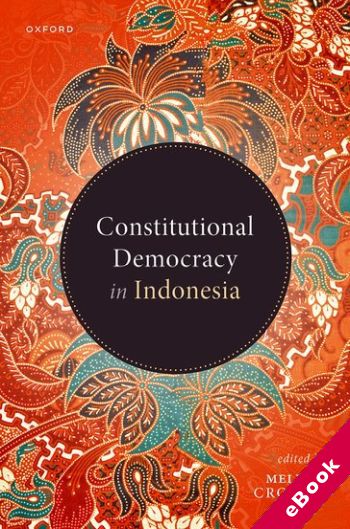
The device(s) you use to access the eBook content must be authorized with an Adobe ID before you download the product otherwise it will fail to register correctly.
For further information see https://www.wildy.com/ebook-formats
Once the order is confirmed an automated e-mail will be sent to you to allow you to download the eBook.
All eBooks are supplied firm sale and cannot be returned. If you believe there is a fault with your eBook then contact us on ebooks@wildy.com and we will help in resolving the issue. This does not affect your statutory rights.
Indonesia's political and governmental structures underwent sweeping reforms in the late 1990s. After decades of authoritarian rule, a key aspect of the transition to constitutional democracy during this period was the amendment of the 1945 Indonesian Constitution - an important legal text governing the world's third largest democracy. The amended Constitution introduced profound changes to the legal and political system, including an emphasis on judicial independence, a bill of rights, and the establishment of a Constitutional Court.
This volume, with chapters written by leading experts, explores the ongoing debates over the meaning, implementation, and practice of constitutional democracy in Indonesia. This includes debates over the powers of the legislature, the role of the military, the scope of decentralisation, the protection of rights and permissible limits on rights, the regulation of elections, the watchdog role of accountability agencies, and the leading role of the Constitutional Court. These legal issues are analysed in light of the contemporary social, political, and economic environment that has seen a decline in tolerance, freedom, and respect for minorities. Contributions to this volume review the past two decades of reform in Indonesia and assess the challenges to the future of constitutional democracy amidst the wide-spread consensus on the decline of democracy in Indonesia. Demands for amendments to the Constitution and calls to revert to its initial form would be a reversal of Indonesia's democratic gains.